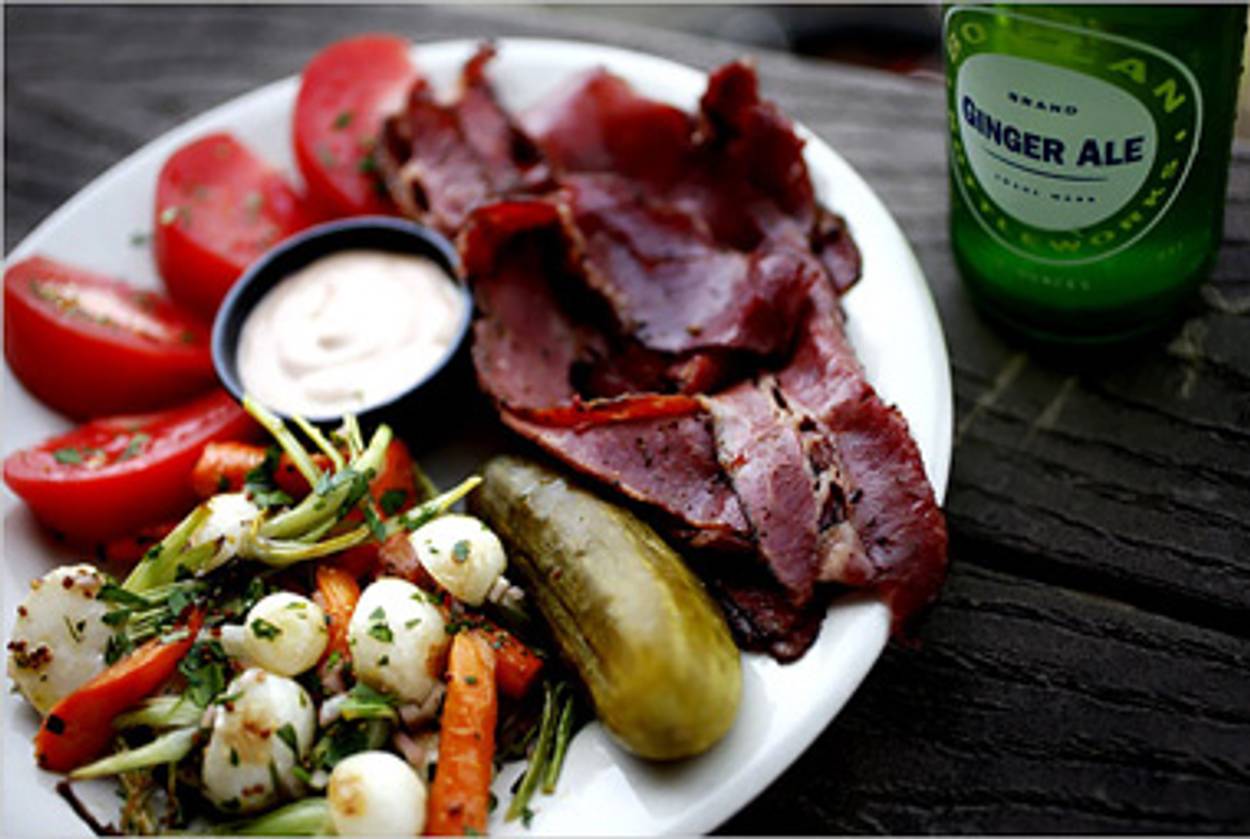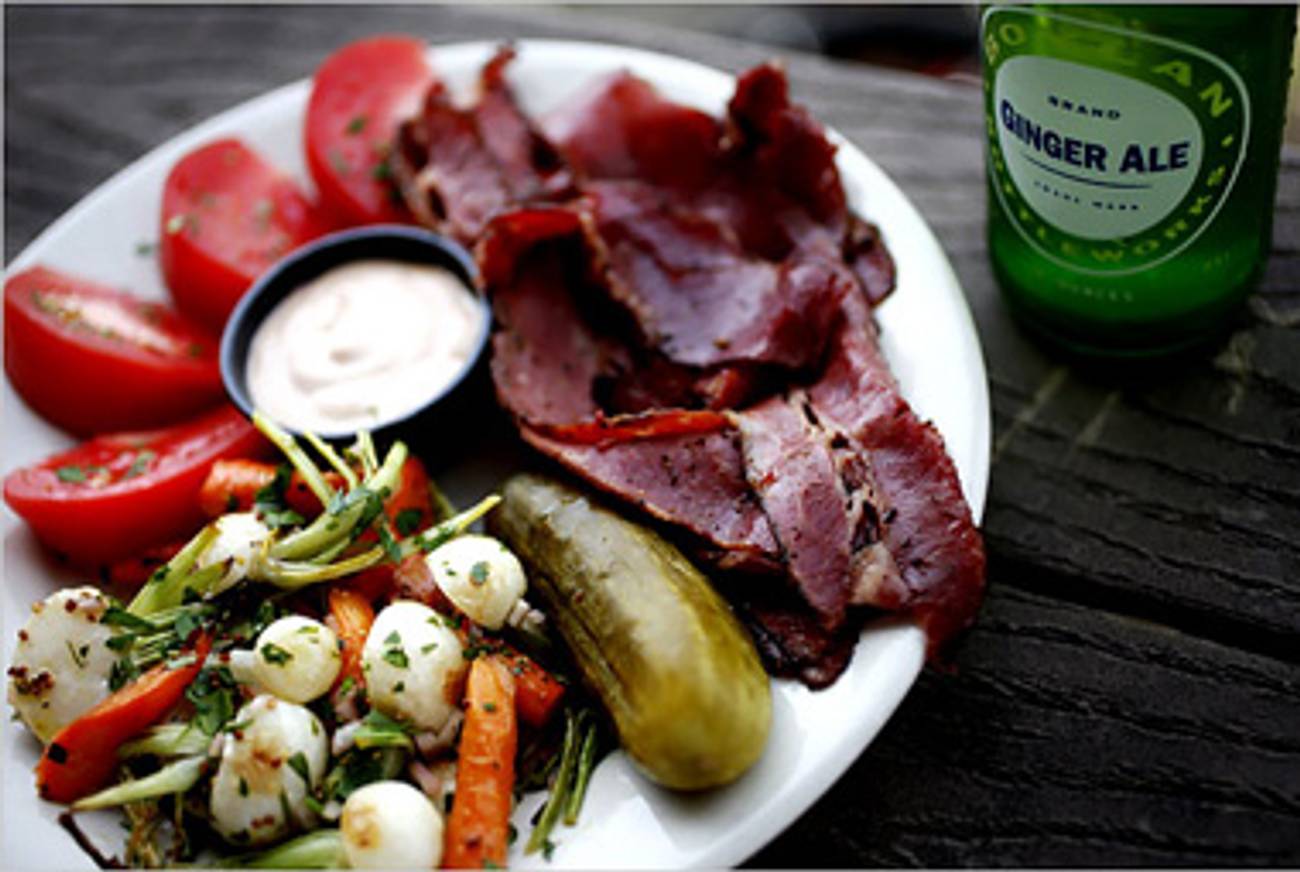The Deli Goes Locavore
Of house-cured pastrami and farm-fresh cole slaw




File under “inevitable”: The New York Times has discovered that various delis in places like Brooklyn and Berkeley and Ann Arbor and Portland (or what I like to call the Bobo Archipelago) are “moving toward delicious handmade food with good ingredients served with respect for past and present.” Of course.
“I have a dream of a multiplicity of pastramis,” says one deliée. Sounds about right.
“They are mashing local potatoes to make peppery hand-wrapped knishes; holding tastings to determine the most savory fat for chopped liver … and even brewing zippy homemade celery tonic—to reduce the carbon footprint, to save on the shipping from Brooklyn and because it simply tastes more like tradition.” Yeah, we should have seen this coming. (Actually, we sort of did when we reviewed the Montreal-style Brooklyn deli Mile End, which is prominently featured in the article.)
While everything food-related is getting a sustainable/locavore/green/etc. makeover these days, it makes particular sense for the deli, which in its old-fashioned incarnation is unhealthy, expensive, and wasteful even by the standards of things that were popular in the ‘50s. (It probably doesn’t hurt that, as anyone who lives on one of the isles of the Bobo Archipelago knows, many of the folks at the forefront of sustainable food movements just so happen to be Jews.)
To learn more about the Jewish deli today, check out the Vox Tablet podcast with David Sax, author of Save the Deli.
Can the Jewish Deli Be Reformed? [NYT]
Related: Meat Up [Tablet Magazine]
Earlier: A Montreal Jewish Deli Grows in Brooklyn
Marc Tracy is a staff writer at The New Republic, and was previously a staff writer at Tablet. He tweets @marcatracy.